ASEEES NewsNet



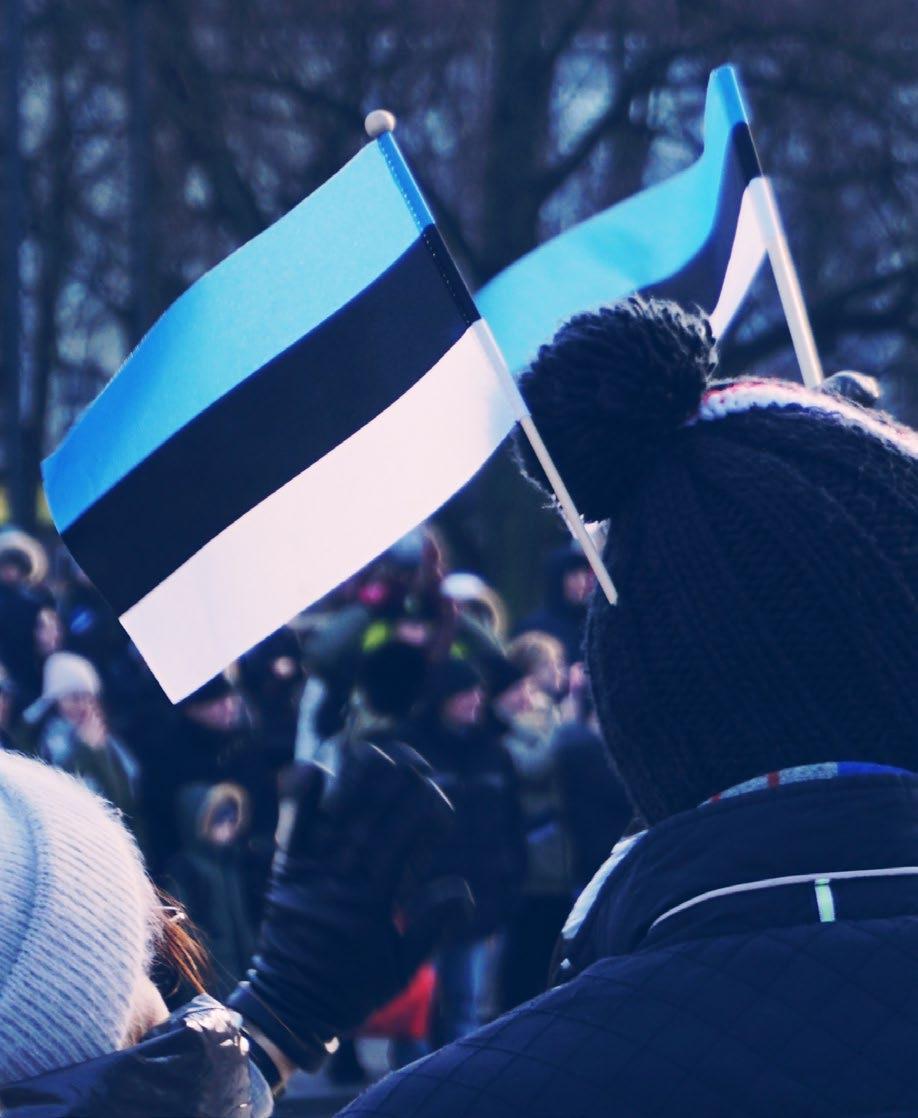 by Epp Annus
by Epp Annus
Lifetime Member Reflections
ASEEES Timeline
55th Annual ASEEES Convention
Call for Photos: Share your Summer Research Photos
Slavic Review Preview
Member News & Publications
Institutional Member News
2023 Cohen-Tucker Dissertation Fellows
11
Note: The views expressed in NewsNet articles are solely the views of the authors and do not necesarily reflect the views or policies of ASEEES or its staff.
16
Association for Slavic, East European, and Eurasian Studies (ASEEES)
203C Bellefield Hall, 315 S. Bellefield Avenue
Pittsburgh, PA 15260-6424 tel.: 412-648-9911 • fax: 412-648-9815
e-mail: aseees@pitt.edu www.aseees.org
Association for Slavic, East European and Eurasian Studies (ASEEES), established in 1948, is a nonprofit, nonpolitical, scholarly society and is the leading private organization dedicated to the advancement of knowledge about Russia, Central Eurasia, and Eastern & Central Europe.
ASEEES Staff
Executive Director: Lynda Park
412-648-9788, lypark@pitt.edu
NewsNet Co-Editors: Kelly McGee
Leah Valtin-Erwin newsnet@pitt.edu
Communications Coordinator: Jennifer Legler
412-648-9911, jenn_aseees@pitt.edu
Convention Manager: Margaret Manges
412-648-4049, aseeescn@pitt.edu
Financial Support: Roxana Espinoza
412-383-0545, aseeesfn@pitt.edu
February 24th is Estonian Independence Day. On this day last year, I drove to Ohio State while listening to Estonian prime minister Kaja Kallas give a lengthy interview for the BBC morning news hour. In all her conversations with journalists, one topic received no mention at all: that, on this day, we Estonians celebrate our independence.
We spent that evening together with our friend Zhanna, born in Soviet Leningrad. We searched the back of the freezer for our bottle of the Estonian vodka Viru Valge, which we had brought back to the United States years ago. First conquering the challenge of a desiccated cork, we then located two shot glasses and took turns: my husband and our grown daughter took the first shots, Zhanna and I did the second round. Then the vodka went back to the freezer, where it waits to celebrate a future Ukrainian victory and the fall of Putin.
Since February 24, 2022, many of us in Slavic, East European, and Eurasian Studies have felt not only the impulse to reach for that half-forgotten bottle of vodka, but also the urge to change our syllabi. On March 8th, my students started reading Serhiy Zhadan’s novel The Orphanage. It had become clear that a substantial rethinking of the field, as it exists in anglophone academia, was long overdue.
Understanding colonialism/imperialism as a premise of decolonization: an ecosocial perspective
In very general terms, the aims of the present “decolonizing turn” can be understood in two ways. First, the aim is to overcome the distortive tendency to “‘Russianize’
the history of the region.”2 Second, asymmetrical power relations in the region call for a more adequate elaboration: we have to articulate a more complete account of imperial/ colonial power structures as they impact the personal, sociocultural, and ecosocial dynamics of the region. To borrow from the recent call for papers from the 2023 ASEEES convention:
Understanding decolonization requires inquiry into the nature of imperial and colonial relationships as well. Such relationships are established, transformed, and destroyed through political, military, and economic levers, through the privileging and subjugation of languages and cultures, across space and time.3
As someone who has worked with postcolonial/decolonial frameworks for over a decade, I thought it might be helpful to share some basic principles for understanding imperial/ colonial power relations in the region, with the hope that these might be productive for classroom discussion.
the ongoing climate crisis urges us to activate a deeper understanding of the fundamental intertwining of human ideas, lives, and actions within natural environments in our classrooms
I would also propose an additional theme to supplement more common topics of decolonization: the ongoing climate crisis urges us to activate a deeper understanding of the fundamental intertwining of human ideas, lives, and actions within natural environments in our classrooms–a basic platform that could, at the same time, support our efforts to decolonize East European and Eurasian Studies. Our present era is one of both new waves of Russian imperial/colonial warfare and of anthropogenic climate change. Such a combined approach, which I call an ecosocial approach, includes an interest in ideologies and political regimes, but also moves beyond them to draw attention to the very concrete, material impact of political rule. “Societal systems and interactions necessarily depend on, shape, and are shaped by ecological systems – and vice versa,” writes Nancy Krieger.4 Colonization/decolonization is indeed partly about ideas, attitudes, curricula, and law–but it is also about earth, soil, water, and air, and about the bodily, material life that people lead within their environments.
An ecosocial framing of the critique of imperialism/ colonialism has only just started to emerge as an analytical approach. There is potential here for our field to make a special contribution to shaping new knowledge.
Decolonizing East European and Eurasian Studies, with an emphasis on the dynamics of Russian imperialism/ colonialism, has been underway at least since the 1990s, with work in cultural studies by scholars such as Marko Palvyshyn and Violeta Kelertas; by the 2000s, it had already become a notable field of scholarly inquiry. To remind us of just two (among many) outstanding examples from the 2000s, here is Katherine Verdery’s proposition from 2002:
Postcolonial studies emphasizes […] practices of domination, such as techniques of evangelizing, manipulations of time and space, modes of inscribing the colonial system on the bodies of its subjects, etc. To adopt this broader rubric, along with some of its insights, would give an alternative kind of coherence to postsocialist studies.5
In 2005, Vitaly Chernetsky, Nancy Condee, Harsha Ram, and Gayatri Spivak discussed these topics during their roundtable “Are We Postcolonial? Post-Soviet Space” for the AATSEEL annual conference. Vitaly Chernetsky declared there, in Washington, that “yes, definitely, I am postcolonial,” and Gayatri Spivak granted the openness of this field of inquiry when she observed that “every postcoloniality is situated, and therefore different.”6
The works published in this field since then would take a monograph to sort and survey.7 Some scholars have preferred to talk about imperialism, colonialism, and the postcolonial condition; others have foregrounded coloniality-decoloniality and decolonial challenges, yet both emphases share the fundamental premise of an initial colonial condition. Colonialism/colonial rule can be defined in this context as a political, economic, and cultural system of domination over a nation or a region by a culturally, ethnically, and linguistically different nation or imperial entity.
There is one semantic difference to observe: “colonial” and “postcolonial” serve as analytical categories for discussing, among other things, socioeconomic and ecosocial structures under colonial rule, cultural hybridity, and the almost invisible, long-term changes in people’s sense of self.8 “Decolonial” and “decolonization,” by contrast, pertain to an active, political position, an effort to produce change. As Franz Fanon describes it, decolonization “sets out to change the order of the world.”9 These terms are thus widely used by Ukrainian scholars, for example, in analyses of the present situation and the artistic responses that it has produced. The decolonial task, in political terms, includes “decolonizing thinking, being, sensing, and corporality.”10
A kind of family resemblance links “empire” with “colonialism.” Both terms are used to describe a politics of subordination in which one nation or culture imposes upon another in a different geographic location: in short, empires exploit colonial matrices of power. The scope of the terms “imperialism” and “colonialism” are somewhat different, however: imperialism does not necessarily involve making claims over territories (one often hears discussion of U.S. imperialism in the sense of economic coercion); colonialism involves a multidimensional domination over a concrete territory and, often enough, a significant influx of new settlers.
For those new to these frameworks—whether postcolonial, decolonial, or anti-imperial—I offer here a few guiding propositions for integrating such frameworks into the classroom. These are inspired by common confusions and misunderstandings. Most of these are more developed in my book, Soviet Postcolonial Studies
Colonialism/postcolonialism/decoloniality are not fixed concepts
We have already cited Gayatri Spivak’s dictum that “every postcoloniality is situated, and therefore different.” Correspondingly, every coloniality is situated, and therefore different. There is no “gold standard” of colonialism against
which to measure empires and histories, and there is no one correct way to address and analyze colonial rule and its implications.
The logic of overseas expansion arguably differs from a continental empire’s annexations of “whatever land or peoples stood next to its borders.”11 For this reason, the usefulness of comparing the Russian Empire to overseas empires may at some points bump up against limits.
In the era of late colonialism, the international prestige of empire began to wane. In this context, the USSR might be understood as a colonial empire in camouflage. It was an empire that did not openly declare itself as such— one, moreover, that used decolonial rhetoric to critique capitalist imperialism. To paraphrase Nancy Condee (and to simplify things), the USSR was internally colonial and externally anti-colonial.15
Colonial power-structures are historically evolving, ecosocially conditioned phenomena
Colonial rules are conditioned by local ecosocial relations as well as by global processes. Regional politics within the same empire can be vastly different, even if the basic principles of rule are much the same. Both earlier Tsarist and later Soviet colonial rule and ideology were situated amidst a complex web of ideas and material conditions across the far-flung corners of the Eurasian landmass, where geography, religion, local ethnic tradition, imperial inheritances, pre-Soviet cultural value-systems and material infrastructures, trans-regional and global processes all played a role in shaping local realities.
12
Nevertheless, we can observe hierarchies among different colonialisms: imperial powers will measure themselves against each other, and ideas will circulate and link colonial imaginaries across continents. Nicholas Breyfogle, Abby Schrader, and Willard Sunderland have remarked of the nineteenth-century Russian Empire that “the Russians in charge of colonization at the time were self-consciously comparing and contrasting Russian settlement and colonial power to what they observed in other states.” Nineteenthcentury Russian officials referred to the Amur River as the “Russian Mississippi” and the Caucasus as “our Algeria.”
13
In the realm of comparative colonialisms, Russia has struggled with the sense that it constituted a second-rate empire—a cultural feeling that has led to the coinage of terms such as Viacheslav Morozov’s “subaltern empire.”
It is not unusual for an area or a culture to accrete colonial layers through a sequence of colonial rules with varied historical continuities, clashes, and reversals. To cite an example of special pertinence, Soviet rule at first defined itself against tsarist imperialism, identifying itself as a decolonizing power. These initial decolonizing impulses were largely abandoned in the 1930s, however, as positively-inflected comparisons with tsarist authoritarian power became ever more appealing to Stalin.14 Russia and its neighbors will thus be marked by such layers of shifting historical imperiality.
Empires reflect the global value-systems of their era; nineteenth-century empires differ in important respects from twentieth-century empires. The Soviet Union might be considered a “late colonial” empire and Russia’s twentyfirst century warfare has been called “neocolonial.”
The dichotomy of “local elites vis-à-vis colonial rule” is in some respects a false dichotomy; each is dependent on the other. As Bogdan Ştefănescu has noted, locals familiar with the values and vocabularies of the new regime will “win a privileged position in their native society.”16
Territorial control is among the most fundamental features of colonialism and a colonial matrix of rule
“Colonialism”–from the Latin colere, meaning to cultivate–suggests control over territory. This control is multidimensional and includes political, economic, and cultural dimensions, all pertaining to ecosocial relationships in the area. Typically, special emphasis is put on control of knowledge-production.
To draw from the Estonian and Latvian examples, following the Soviet annexation in 1944, existing political systems of independent nation-states were dismantled, socioeconomic connections around the Baltic Sea were severed, educational systems were rearranged according to Soviet models, and local history was rewritten to prioritize the guiding role of “brotherly” Russia whenever possible. Both Estonia and Latvia became heavily garrisoned with military and border-guard units–troops who did not speak the local vernacular–and access to many areas became restricted. Fishermen in Livonian seashore villages, for example, found themselves sundered from the sea, literally
fenced off with barbed wire, a policy that brought Livonians to near extinction as an ethnicity. Colonial ecological violence included the careless and environmentally devastating exploitation of natural resources, as with phosphorite and oil shale mining in Estonia. The massive new influx of Russian-speaking settlers completely and irrevocably changed population dynamics.
Figure 1. Colonial erasure. Oskar Raunam. Advancing toward Communism, under the Leadership of Great Stalin! Print, 1951. The poster, with text in Estonian, is a version of very similar posters printed in Russia. Notably, the map does not extend to Estonian territory.

values and traditions. The colonial attitude entails unresponsiveness, if not an outright disdain toward local cultures and local ethnicities, and it operates with a sense of cultural superiority. “We came to lift you from your backwardness” is the oft-heard slogan of paternalistic colonial discourse. “We gave you hospitals and schools, we created jobs, we modernized your backward country. Where is your gratitude?”
The most essentializing version of such attitudes in the USSR was the great Russian nation discourse of the Stalin era, which awarded Russians a pre-eminent role over other nations. They were, Stalin declared, “the most outstanding nation,” the ones with a “clear mind, stable character and patience.”18 David Brandenberger provides a telling summary of Orientalizing practices in Stalin-era exhibition culture: “non-Russians were collectively cast as if frozen in time, forever clad in furs and exotic premodern textiles and surrounded with obsolete tools and field implements.”19
The colonial discourse of a civilizing mission is highly selective, of course: it neglects topics of environmental damage, disrupted ecosocial relationships, and the enforcement of uneven, sometimes monocultural development. The self-aggrandizing fiction of civilizing discourse collapses under scrutiny when one makes comparisons across the Baltic Sea: independent Estonia and Finland were at a generally comparable level of development in the 1930s; by the end of Estonia’s years under Soviet rule, Finland’s living standards and social indicators were simply far higher.
Common understanding associates colonialism with ruthlessly profitable economic extractivism. Especially in the late colonial era, this was not necessarily the case. The British colonies, for example, cost British taxpayers £40 million in 1950.17 Everywhere, long-distance decisionmaking produced countless failures, shocking wastefulness, and local suffering that sometimes reached genocidal levels (one thinks of the Ukrainian and Kazakh famines) and all without necessarily producing anyone’s great enrichment.
The colonial attitude is characterized by unresponsiveness to local cultures, presumptions of superiority, and the paternalist rhetoric of a civilizing mission
The most fundamental aspect of colonial rule is longdistance decision-making and the neglect of local
The hegemonic part of the dominating nation—those whose voices define their nation—do not conceive of their culture as doing something morally despicable, but rather consider themselves as benevolent bringers of well-being
While discourse of the “great Soviet homeland” was the butt of many jokes in the non-Russian borderlands, it filled Russophone populations all over the USSR with a sense of entitlement, some of which has survived to this day. Kevin Platt, for example, has observed manifestations of Russophone settlers’ presumptions of cultural superiority in post-Soviet Latvia: “Discussions of Latvian educational policies, which impose education in Latvian on Russian children, are most often couched in terms of the relative inferiority of Latvian civilization by comparison with Russian civilization, which possesses ‘universally recognized worldwide significance.’”20
The cultural imaginary of the “great Soviet homeland” set Russophone settlers up for a cultural shock when the Soviet empire finally collapsed. They were faced, for the first time, with what many of them considered an indignity: the prospect or necessity of learning an inferior local language and perhaps becoming acquainted with local cultural traditions. This crisis, and the absurdity of it, has yet to be fully articulated from a decolonial perspective.
Most recently, Una Bergmane has demonstrated the continuities of imperialist figures of thought in the Russian diaspora: “Those who have been marginalized and dominated by empires are often hypervigilant to all manifestations of imperial practices; meanwhile, those who come from imperial centers are often unwilling and unable to see imperialistic patterns in their own attitudes.”21
Among former empires, the aspect of decolonization at once most salient and yet most resistant to change is any serious reckoning by former imperial power centers of the imperial/colonial project as fundamentally morally wrong, and as destructive of subordinated nations and ethnicities. Regrettably, the dominant part of the Russian political and cultural elite–still attached to the fantasies of empire–appears far from ready to make this kind of cultural acknowledgement on any broad-based scale.
Even in authoritarian societies, political rule is grounded in multiple ideologies; there are always disputes, differences, and inconsistencies. No colonial rule can be exhaustively analyzed through coloniality alone. Since the era of enlightenment, colonial regimes have created various combinations of modernity and coloniality. In the Soviet empire, the colonial matrix of power was combined with state ownership of the means of production, one-party rule, and the socialist ideals of a welfare state.
the background of my childhood in the Estonian SSR. Usthem binaries were the stuff of everydayness wherever the Soviet borderlands had been targets of extensive Russophone in-migration and yet had not fully interiorized the colonial discourse of Russian superiority. Strong usthem polarization in the borderlands, however, gave rise to new sets of challenges and reframed questions of belonging in the late-1980s and early-1990s.
The decolonial phase for the imperial nation can only start from an acknowledgment of its historical wrongdoings. So long as Russian political and intellectual elites do not own up to their history of colonial violence, the imperial episteme will persist. Academic research and teaching, together with the contributions of public intellectuals in the popular press, and in all languages, can substantially and positively help set the conditions to make this change possible. And certainly, it is an imperative of our era that we address these issues in our classrooms with care, with attention to detail, and with a good balance of comparativism and specificity.
Epp Annus is associate professor at Tallinn University, Institute of Humanities (Estonia); she also lectures at the Department of Slavic and East European Languages and Cultures, Ohio State University (USA).

Her recent books include Soviet Postcolonial Studies: A View from the Western Borderlands (Routledge, 2018) and Coloniality, Nationality, Modernity: A Postcolonial View on Baltic Cultures under Soviet Rule, ed. by Epp Annus (Routledge, 2018). She is also an author or co-author of three monographs and several collective volumes in Estonian.
She is currently working on a manuscript Environment and Society in Soviet Estonia, 1960-1990 (under contract with Cambridge UP). Her work in progress includes a comparative analysis of Soviet and post-Soviet postcolonial literatures and research on neoliberalism, postmodernism and decoloniality in the 1980s.
A colonial situation will generate new stereotypes and essentialist “us‒them” distinctions, as borderland cultures make an effort to fence off newcomers from their imaginary zones of national intimacy. “Let’s walk further, there are Russians here:” such comments formed
In addition to her work as a scholar, she has published two novels, some poetry and several children’s books.
The decolonial phase for the imperial nation can only start from an acknowledgment of its historical wrongdoings.
Endnotes for “An Ecosocial Approach to Decolonizing Slavic, East European, and Eurasian Studies”
1 This is an extended version of a presentation given in the first roundtable of the ASEEES Decolonization in Focus series, on February 3, 2023. I thank the organizers and the sponsors of the roundtable.
2 I refer here to Mark Edele’s and Rebecca Friedman’s critique of the ‘Russianization’ of Soviet studies: “To ‘Russianize’ Soviet history […] flattens out its multi-national character and tends to neglect the other fourteen successor states of the Soviet Union.” Mark Edele and Rebecca Friedman, “Elements in Soviet and Post-Soviet History: A Contribution to Decolonizing Soviet History,” ASEEES Newsnet 62, no. 4 (2022): 16.
3 https://www.aseees.org/convention/2023-aseees-convention-theme
4 Nancy Krieger, Ecosocial Theory, Embodied Truths, and the People’s Health (Oxford University Press, 2021), 17.
5 Katherine Verdery, “Whither Postsocialism?,” in Postsocialism: Ideals, Ideologies, and Practices in Eurasia, ed. C. M. Hann (Routledge, 2002), 18.
6 Vitaly Chernetsky et al., “Are We Postcolonial? Post-Soviet Space. Forum: Conference Debates,” PMLA 121, no. 3 (2006): 828, 834.
7 I have offered a brief overview in chapter two, Epp Annus, Soviet Postcolonial Studies: A View from the Western Borderlands (Routledge, 2018). The introduction of this same monograph provides a lengthy introduction to the relevant terminology.
8 The conceptual cluster “coloniality/modernity/decoloniality” was introduced by Latin American scholars in the 1990s; they also shifted the emphasis from “empire” to “colonial matrix of power.” My own work has found it productive to combine the emphasis on coloniality/modernity with various ideas taken from postcolonial studies. For example, I have relied extensively on Homi Bhabha’s “classical postcolonial” analyses of hybridity, mimicry, and more, while centering my own analysis on the thorough-going co-existence of coloniality and modernity.
9 Frantz Fanon, The Wretched of the Earth (Grove Press, 2004), 2.
10 Madina Tlostanova, What Does It Mean to Be Post-Soviet?: Decolonial Art from the Ruins of the Soviet Empire (Duke University Press, 2018), 22.
11 This is Edward Said’s remark about Russia as an empire in Edward W. Said, Culture and Imperialism (New York: Vintage Books, 1994), 10. A good overview of continental colonialism is offered in Dittmar Schorkowitz, John Chavez, and Ingo Schröder, eds., Shifting Forms of Continental Colonialism. Unfinished Struggles and Tensions (Palgrave Macmillan, 2019).
12 Nicholas B. Breyfogle, Abby Schrader, and Willard Sunderland, “Russian Colonizations: An Introduction,” in Peopling the Russian Periphery: Borderland Colonization in Eurasian History, ed. Nicholas B. Breyfogle, Abby Schrader, and Willard Sunderland (London and New York: Routledge, 2007), 8.
13 Viatcheslav Morozov, Russia’s Postcolonial Identity: A Subaltern Empire in a Eurocentric World (Palgrave Macmillan, 2015).
14 On Stalin’s attraction to tsarist Russia, see, for example, Vladislav M. Zubok, A Failed Empire: The Soviet Union in the Cold War from Stalin to Gorbachev (The University of North Carolina Press, 2009).
15 Chernetsky et al., “Are We Postcolonial? Post-Soviet Space. Forum: Conference Debates,” 830.
16 Bogdan Ştefănescu, Postcommunism/Postcolonialism: Siblings of Subalternity (University of Bucharest Publishing House, 2013), 70.
17 Andrew Thompson and Meaghan Kowalsky, “Social Life and Cultural Representation: Empire in the Public Imaginations,” in Britain’s Experience of Empire in the Twentieth Century, ed. Andrew Thompson (Oxford and New York: Oxford University Press, 2012), 287.
18 English translation in Philip Boobbyer, The Stalin Era (Routledge, 2000), 132–33. For closer analysis, see David Brandenberger, National Bolshevism. Stalinist Mass Culture and the Formation of Modern Russian National Identity 1931–1956 (Harvard University Press, 2002); Epp Annus, “The Colonizer’s Day off: Colonial Subjectivities in the Soviet-Era Baltics,” in Postcolonialism and Its New Discontents: Envisioning New Relations to the Colonial Past, ed. Monika Albrecht (Routledge, 2019), 240–54. https://www.taylorfrancis.com/chapters/oa-edit/10.4324/9780367222543-13/ colonizer-day-epp-annus
19 Brandenberger, National Bolshevism, 93.
20 Kevin M. F. Platt, “Occupation versus Colonization: Post-Soviet Latvia and the Provincialization of Europe,” in Memory and Theory in Eastern Europe, ed. Uilleam Blacker, Alexander Etkind, and Julie Fedor (Palgrave Macmillan, 2013), 137.
21 Una Bergmane, Why Did Latvia Ban Dozhd? Imperial Legacies and National Debates. 19 Dec, 2022 https://www.fpri.org/article/2022/12/whydid-latvia-ban-dozhd-imperial-legacies-and-national-debates/
The Holmgren Graduate Student Essay Prize is awarded for an outstanding essay by a graduate student in Slavic, East European, and Eurasian Studies. The winner of the competition receives $300, free roundtrip domestic airfare to and accommodations at the ASEEES Annual Convention and an honorary 2024 ASEEES membership.
To apply
The essay author must be a graduate student and must have written the essay in English while in a graduate program. Students wishing to submit their essays should submit through the Chair of their Regional Affiliate or the representative of their Institutional Member.
Essays should have a minimum word count of 7,500 and a maximum word count of 14,000 inclusive of footnotes and bibliography. Submissions must be double-spaced and include footnotes or endnotes.
Full Application Details
Deadline: June 15
Jan Kochanowski. Occasional Poems, trans. Michael J. Mikoś, with a foreword by Roman Krzywy, xxiv + 97 p. (ISBN 978-089357-519-9), $22.95.
Occasional Poems, the third in this series of Jan Kochanowski’s works, contains seven occasional poems rendered into English for the first time. They are: On the Death of Jan Tarnowski, Memorial, Epithalamium, Incursion into Muscovy, Concord, Satyr, and Banner or the Prussian Homage. They are presented here in thematic order; the first two are elegies, the next two celebrate the wedding of a powerful magnate and his victorious military campaign, while the last three deal with important political and religious issues in 16th-century Poland.
Anthony J. Heywood, Scott W. Palmer, and Julia A. Lajus. Science, Technology, Environment, and Medicine
Slavica Publishers
Indiana University 1430 N. Willis Drive Bloomington, IN, USA 47404-2146

in Russia’s Great War and Revolution, 1914–22, xvii + 539 p., 2022 (978089357-515-1), $44.95.
Long overlooked in the literature, historical investigations of Russian STEM have recently benefitted from newfound interest among specialists. This volume aims to promote further understanding of Russia’s unique contributions to STEM-related fields by documenting and analyzing the complex transformations occasioned by the country’s “continuum of crisis” during the years c. 1914–24. Sixteen chapters shed new light on longstanding debates regarding Russia’s path to modernization; the contributions of its technical and scientific experts; and the extent to which the institutions and methods adopted by Soviet leaders were built upon foundations established by their imperial predecessors.
[Tel.] 1-812-856-4186
[Fax] 1-812-856-4187
[Toll-free] 1-877-SLAVICA slavica@indiana.edu http://www.slavica.com
Articles
Ben Eklof
How Was Russia Governed Locally?
https://kritika.georgetown.edu
Kritika is dedicated to critical inquiry into the history of Russia and Eurasia. The quarterly journal features research articles as well as analytical review essays and extensive book reviews, especially of works in languages other than English. Subscriptions and previously published volumes available from Slavica—including, as of 16, no. 1, e-book editions (ePub, MOBI, PDF). Contact our business manager at slavica@ indiana.com for all questions regarding subscriptions and eligibility for discounts.
Alexandre Sumpf
“By and for Disabled Veterans”
Norihiro Naganawa
Officious Aliens
Donald J. Raleigh
Placing Capitalism at the Service of Socialism
Rustam Alexander
AIDS/HIV and Homophobia in the USSR, 1983–90
Review Essays
Donald Ostrowski
Recent Studies on Early Rus´ Chronicles
Heather J. Coleman
Bringing Theology Back In
Mirjam Galley
Childhood and Youth in the Soviet Union under Stalin
Three String Books is an imprint of Slavica Publishers devoted to translations of literary works and belles-lettres from Central and Eastern Europe, including Russia and the other successor states of the former Soviet Union.
Ivan Janković. Kata Nesiba: The Authentic and Illustrated History of a Belgrade Whore and Her Struggles for Her Constitutional Rights, 1830–1851, illus. Veljko Mihajlović, trans. Henry R. Cooper, Jr., xiv + 115 p. (ISBN 978089357-516-8), $19.95.
The 19th century in Serbia began with two uprisings against an Ottoman overlordship that had oppressed not only the Serbs, but all of Southeastern Europe for almost 400 years. Fired by memories of their medieval empire and determined to restore Serbia as a Christian state with European-style institutions, Serbia’s two princely families, the Karađorđevićes and the Obrenovićes, vied with one another to modernize the country and eventually, in 1878, to achieve its full independence from the Ottoman Empire.
Kata Nesiba tells in vivid detail a major portion of the story of Serbia’s emancipation and modernization. Based on extensive research in Serbian archives, the author and illustrator uncover the tumultuous life of Kata, a Belgrade sex worker, as she lives and works in mid-century Serbia. They adduce numerous side stories, as well, to depict the sexual mores of the country at that time, not just of the “whores and harlots of Belgrade,” but also of the cross-dressing tavern entertainers, the LGBT population, political figures both small and great—Vuk Stefanović Karadžić, the “Father of Serbian Literacy” among them—and the ever-diminishing power of the Turks in Serbia’s political, economic, and social life. From dusty archives Kata Nesiba brings to life the authentic stories of the men and women who experienced some of the most tumultuous times in Serbia’s long and fraught history. And, as the author and illustrator delight in pointing out, so much of what happened then is happening again, in a Serbia once again independent.
This year ASEEES celebrates its 75th anniversary. The academic reach of ASEEES members and their commitment to the field have been key to the Association’s longevity. Each issue of NewsNet in 2023 will celebrate ASEEES lifetime members’ reflections, histories, and experiences with the Association as we look towards the future of our field.
ASEEES (AAASS when I joined in the late 1970s!), Slavic Review, and the annual meeting has been transformative for me intellectually and personally—even, dare I say, intimately. Leaving aside the obvious big things—the ASEEES meeting as a place to network professionally and even be interviewed for jobs; reading and later becoming editor of Slavic Review; serving on many ASEEES committees; even being elected president—I want to emphasize the transformative intellectual impact of the interdisciplinary and the international character of our association. Through ASEEES (the meeting and the journal) I have been exposed to and challenged by the best scholarly work (and not only from North America) about the Russian, Eurasian, and East European past—crossing boundaries of space and time and method within a large but always interconnected area of the world (though the connections have not always been positive, as we have seen so often and today). I have the most fun (intellectually speaking) going to panels that are not mostly historians. Where else could I hear the latest work on poetry and politics in the region, to name but two. The books and articles I have written changed because of these wanderings. At the personal level, I think almost everyone knows how important the convention can be (the in-person convention, obviously) for seeing old friends and making new ones. But how many people can thank the ASEEES convention, as I can, for two very happy marriages?! I met my first wife, Jane Hedges, who died in 2015, at an AAASS meeting in the 1970s (she was a book exhibitor). I met Daniela Steila in Leningrad when we were both doing research there in the early 1980s. It was at ASEEES meetings that I saw her again (thanks to mutual friends). We married in 2020. As I said, ASEEES can be transformative— and in all sorts of unexpected, even delightful, ways.
- Mark D. Steinberg
Being an ASEEES member keeps me connected to other people in my field who are doing exciting research and innovative teaching. My membership feels even more important now as a means of maintaining a sense of belonging to a community of academic researchers, despite Russia’s dramatic internal changes and aggression against Ukraine which inhibit possibilities for U.S. scholars to visit either country for research.
 - Barbara Allen
- Barbara Allen
I joined ASEEES back in 1962 as a graduate student and became a life member during the mid-1980s; one of my better investments. From time to time I have been on legal panels at the conferences and done the occasional book review. Slavic Review is the lifeblood of the Association, interdisciplinary in focus, and thoroughly introduces developments in the field via its extensive reviews of the current literature.
 - William Elliott Butler
- William Elliott Butler
My favorite memory without a doubt, it was in Boca Raton at the 1998 national convention, popularly referred to as “the hurricane conference.” With a large hurricane bearing down on Florida’s Atlantic coast, about half of all registered participants cancelled, leaving many panels with only one or two presenters. But rather than ruin the conference, the sparsely attended sessions (combined with the raging wind and rain outside) left those of us present with a feeling of “we lucky few.” By Saturday, the storm passed, the sun came out, and that evening Norman Naimark gave his Presidential Address. For my own panel on Sunday morning, only one fellow panelist was there— Lynne Viola who was the chair—but that left extra time for audience comments and an excellent discussion.
- David Hoffman
1938: The Joint Committee on Slavic Studies (JCSS) creates a subcommittee specifically for the review of Russian Studies, whose chief activity is to promote and finalize a proposal for a national professional organization
1960: ASEER and JCSS change the AAASS charter to launch a full-fledged national professional membership organization under the same name, combining the activities of the JCSS’s Russian Studies subcommittee and ASEER
April 1964: First AAASS Convention is held at Hotel Commodore in New York City, with 590 people in attendance
1967: Second AAASS Convention is held in Washington, DC, with 780 people in attendance
1970: National conventions become an annual occurrence, held at various venues around the US (with an occassional conference held outside the US)
1938
1948
1948: ASEEES is founded as the American Association for the Advancement of Slavic Studies (AAASS) by ACLS/SSRC to publish The American Slavic and East European Review (ASEER)
1960
1960: AAASS is offically housed at the University of Illinois
Fall 1960: The first issue of NewsNet is published
1995: AAASS moves to Harvard University
2010: The Association changes its name from AAASS to ASEEES (Association for Slavic, East European, and Eurasian Studies), coinciding with the move of the Association’s headquarters to the University of PIttsburgh

2018: To celebrate 70 years, ASEEES launches The Future of the Field campaign, raising $1.3 million for the research and development of the field
2021: ASEEES expands programs to include Internship Grants and the Initiative for Diversity and Inclusion
1961: The American Slavic and East European Review is renamed Slavic Review; publication format is expanded

1969 1995
1969: AAASS moves to Ohio State University
1982
1961 1964 1967 1991 1998
2010
1982: AAASS moves to Stanford University
1991: AAASS Executive Director Dorothy Atkinson issues a report historicizing the field of Soviet and East European Sutdies
1998: AAASS holds its 30th annual convention on the 50 year anniversary of the organization’s founding, featuring a speech by AAASS President Norman Naimark
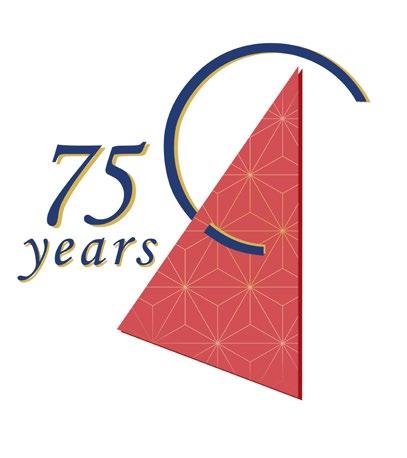
2014
2018
Between 2014-2017, ASEEES greatly expands resources for members by launching the First Book Subvention, Member Mentoring Program, Cohen–Tucker Dissertation Fellowship Program, and Dissertation Research Grants
2021
2023
In 1998, AAASS asked me to give my presidential address about the 50th Anniversary of the organization. Now, ASEEES has asked that I write an essay on changes in the field twenty-five years later. In the 1998 speech, I focused on the origins of interdisciplinary Slavic Studies in the wartime efforts of the Research and Analysis Division (R&A) of the Office of Strategic Studies (OSS) to understand Soviet involvement in World War II by bringing together specialists from a variety of disciplines who had both linguistic and cultural knowledge of Russia. I traced those origins through the early Cold War period and the founding of the first interdisciplinary institutes (Columbia and Harvard) for Russian Studies in 1946 and 1948. It is fair to say, as I did in 1998, that those efforts were heavily Russia-focused, and said little or nothing about Eastern Europe, not to mention the other nations that comprised the Soviet Union. The speech concluded with a few reflections on the state of the “field” and our hopes for and fears about the future of our profession, most of which remain with us today. This essay is different, based as it is on experience, observation, hearsay, and intuition, instead of research into a more distant past.

One of the founding principles of the OSS R&A organization—as well as of AAASS and ASEEES—is interdisciplinarity. No single discipline can grasp the character of a region, a country, or a people. There simply has to be a meeting of a variety of approaches to understand how societies and polities function, what holds them together, and what tears them apart. I love my discipline (History), as I assume other colleagues are attached to theirs, but there is no way that History alone can provide the kinds of insights into why, for example, Putin attacked Ukraine, than could a group of scholars from a variety of disciplines focused on the
same question. That was the essential insight of R&A during World War II and it continues to be relevant today. These questions, of course, don’t necessarily need to be linked to war; they apply to almost any problem—social, economic, demographic, etc., that faces the region today. There will always be a tension between the demands of disciplinary knowledge and interdisciplinarity. We see it especially in the social sciences, which remain, as they were in 1998, sometimes wedded to specific methodologies that exclude interdisciplinary approaches. We also still have too few social scientists who are conversant in the languages and cultures of the countries on which they work. But, happily, this is not always the case, and, in addition, the infusion of scholars into academic social science who come from the regions we study sometimes creates quite striking innovations in our field. There also has been notable growth in the number of anthropologists who have applied themselves to Slavic
of the founding principles of the OSS R&A organization—as well as of AAASS and ASEEES—is interdisciplinarity.Norman Naimark’s 1998 President’s Address can be read here.
and Eurasian Studies, broadly defined, which in turn has enlivened academic discussions about the region.
At one point after I came to Stanford in the late 1980s, a colleague who was involved in a university-wide initiative to break down the insularity of departments and support interdisciplinarity asked me if I would rather be in a hypothetical department of Russian and East European Studies rather than in the Department of History. I said no: my discipline gave me structure, rules, norms, and models that I had internalized for doing my research and writing. At the same time, I go to ASEEES meetings and not to the American Historical Association meetings, at least not anymore. Part of that is personal and cultural— my friends, former students, and closest interlocuters also go to ASEEES. I am also quite simply more interested in the convention program, the speakers, and the formal and informal discussions that take place there. In 2021, I was asked by the Chair of Slavic Languages and Literatures at Stanford to serve as Interim Chair for a year, and I agreed. I felt quite at home doing the job,
in part because I liked my colleagues there, but more importantly because we cared about and mulled over the problems of the same part of the world for many of the same reasons. The feeling of commonality, that shared emotional and intellectual commitment to the peoples of the region, is what continues to bring many of us to ASEEES meetings. These are both “elected affinities,” in Goethe’s sense, and natural ones.
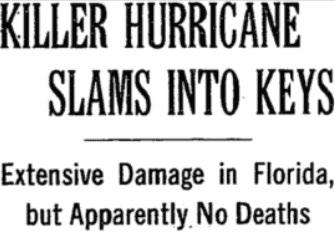
In the 1998 speech, I was also very impressed by the increasing internationalization of the organization. Colleagues from Germany, the UK, Italy, and other European countries—as well as from Asia—came to our meetings precisely because AAASS was not hidebound by disciplinary strictures and was generally more democratic in its policies regarding the acceptance of papers. Scholars from Russia, Ukraine, the Baltics, and Eastern and Central Europe also showed up in increasing numbers. Unfortunately, the war in Ukraine has produced a huge involuntary emigration of Russians and Ukrainians,
within the region itself, and to Europe, North America, and South America. It is always a sad occurrence when people are forced to flee from their homelands. But it is also true that, increasingly, we are seeing visiting scholars from the region in our universities, applications to graduate school from émigrés or offspring of émigrés, and Ukrainian and even Russian students entering our freshmen classes. Inevitably, they will enrich our discussions about the region, and, in some cases, join the ranks of scholars in the field. That Ukraine and, for other reasons, Russia are closed to young Western scholars poses serious problems for the training of the next generation of specialists in the Russian, East European, and Eurasian Studies field. But universities and scholarly organizations, ASEEES included, are developing creative ways to overcome that problem, not to mention the opportunities that have been opened by the digital world.

The feeling of commonality, that shared emotional and intellectual commitment to the peoples of the region, is what continues to bring many of us to ASEEES meetings.The 1998 Convention was marked by Hurricane Georges, which prevented many of those scheduled to attend from doing so. Images: Larry Rohter, “Killer Hurricane Slams Into Keys,” The New York Times, September 26, 1998.
The war in Ukraine has also created other kinds of challenges for the field. These were there in 1998, but they have been highlighted and exacerbated by the present conflict. It makes sense that scholars are now urging a stronger dose of decolonization, especially, of course, when thinking about the relationship between Russia and Ukraine. Our field was thinking about this in 1991, as we reconsidered the relationship between Russia and Eastern Europe and the Baltic states. But then again, our field has been undermining the exaggerated claims of the colonial Russian big brother from the beginning. One of my own beloved professors at Stanford, Wayne Vucinich, already conceived in the early 1970s of the pioneering Studies of Nationalities series at the Hoover Institution Press; the first volume, The Crimean Tatars by Alan Fisher, was published in 1978. Ron Suny published his foundational study of nationality and class in the Baku Commune in 1972. My own dissertation at Stanford in 1972 explored the history of the Kingdom of Poland in the late 1870s and 1880s. When I joined the Russian Research Center at Harvard as a Research Fellow in the early 1970s, there was already a well-established community of talented graduate students studying with Omeljan Pritsak who devoted their scholarship to Ukraine, though, it is important to add, not to the exclusion of its integral ties with both the Polish and Russian pasts. There were many more examples of those in the profession who did not accept the colonialist view of the non-Russian parts of the Russian Empire, though not nearly enough.
This has changed since 1989-1991 and even more so as a consequence of the present catastrophic war. Examining Russian (and non-Russian) political and cultural figures by using the analytic tools of post-colonial and subaltern studies can only add to our understanding of the region. The real trick is to decolonize without giving succor to the excesses of nationalism, which is always a danger. Decolonization also should not mean the study of Russia ceases to be important, even crucial to scholarship on the region. There may be good reasons for Ukrainians to level statues of Pushkin in their cities; there is no
justification for American scholars sympathetic to the Ukrainian cause in the war to symbolically do the same in our universities. Inevitably, specialists will look at their historical, cultural, and social science-oriented research projects in the region through the darkened lenses of the Russian aggression against Ukraine. It will alter their perspectives and even thinking about the past, as well as of the present and future. I am constantly reminded about E.H. Carr’s dictum that history is “an unending dialogue between the present and the past.” Still, we owe it to our disciplines and each other, as an interdisciplinary association, to approach both the past and present with empirical accuracy, careful scrutiny, and informed interpretation.
That’s as true today as it was 75 years ago.
Norman M. Naimark received his A.B., M.A. and Ph.D (1972) from Stanford University. He spent fifteen years as Professor at Boston University and Research Fellow at the Russian Research Center at Harvard before returning to Stanford in 1988. He is presently Robert and Florence McDonnell Professor of East European Studies in the History Department at Stanford University, and is, by courtesy, Senior Fellow at the Hoover Institution and the Freeman-Spogli Institute.
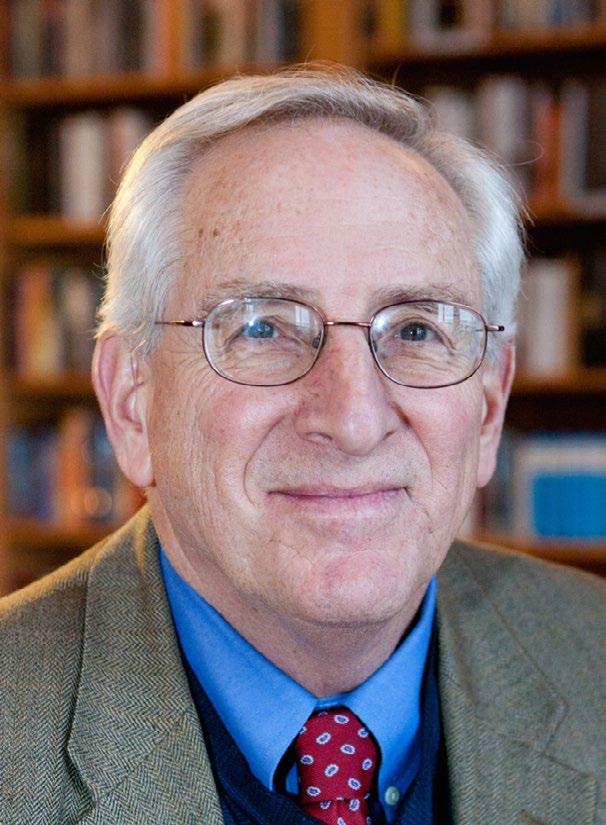
His most recent books are: The Russians in Germany: A History of the Soviet Zone of Germany (Harvard 1995); Fires of Hatred: Ethnic Cleansing in 20th Century Europe (Harvard 2001); Stalin’s Genocides (Princeton 2010); Genocide: A World History (Oxford 2017); and Stalin and the Fate of Europe: The Struggle for Sovereignty (Harvard 2019).
Naimark was President of AAASS in 1998. He also received the Award for Distinguished Contributions to Slavic, East European, and Eurasian Studies from ASEEES in 2011.
...we owe it to our disciplines and each other, as an interdisciplinary association, to approach both the past and present with empirical accuracy, careful scrutiny, and informed interpretation.
For over 45 years, American Councils has been a leader in innovative overseas language study and research in Eurasia and the Balkans.
Conduct fully-funded research for 3-9 months in 22 countries throughout Eurasia and Eastern Europe. Funded by the U.S. Department of State’s Program for Research and Training on Eastern Europe and the Independent States of the Former Soviet Union (Title VIII). Add up to 10 hours of language instruction through the Combined Research & Language Training Program (CRLT)
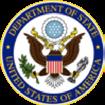
Study Russian, Eurasian or Balkan languages while immersing yourself in the cultures of Central Asia, East and Southeast Europe. Offered for summer, semester, or academic year, as well as online.

Languages offered : Albanian, Armenian, Azerbaijani, Bosnian, Bulgarian, Chechen, Dari, Farsi, Georgian, Kazakh, Kyrgyz, Macedonian, Montenegrin, Pashto, Romanian, Russian, Serbian, Tajiki, Turkish, Ukrainian, Uzbek.
Full details, including eligibility requirements, deadlines, scholarships, and applications, are available at: researchabroad.americancouncils.org
studyabroad.americancouncils.org

Questions? Contact us: outbound@americancouncils.org

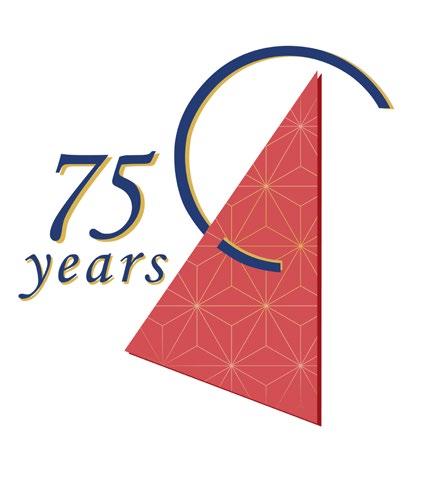
Nov 30 - Dec 3, 2023 - Philadelphia, PA
Oct 19-20, 2023 - Virtual
JOIN ASEEES
REGISTER for Convention
BOOK Hotel Reservations at the Philadelphia Marriott Downtown
#ASEEES 23
Sponsors, Exhibit, and Advertising Opportunities are available
Deadline: May 22
ASEEES offers Travel Grants for members to present their papers at the Annual Convention. You must be a regular or student member to apply for travel grants (except for the Diversity and Inclusion Grant).
• Graduate Student Travel Grant Program
• Regional Scholar Travel Grant Program
• Convention Opportunity Travel Grant Program
• Diversity & Inclusion Travel Grant Program
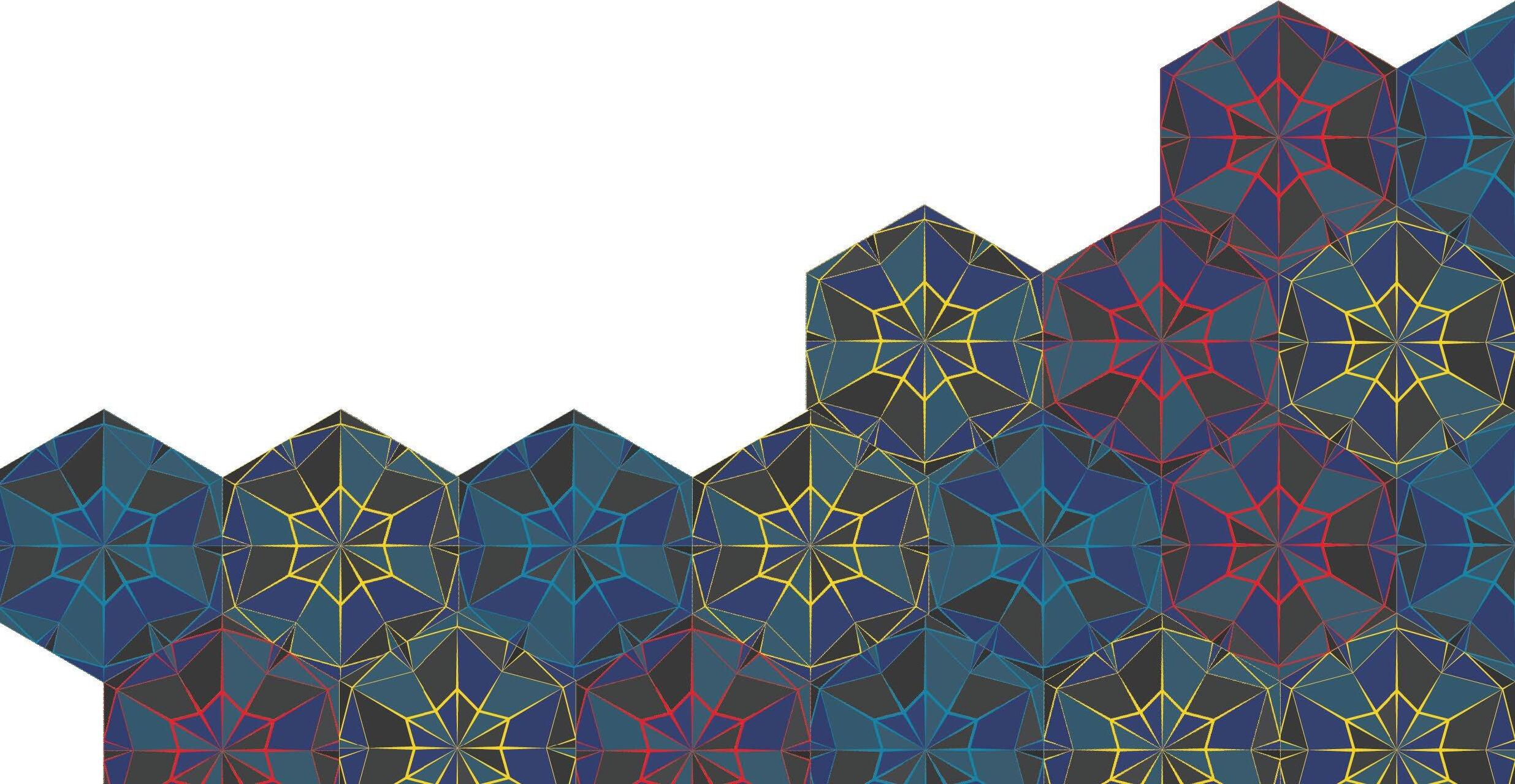
ASEEES Travel Grants are supported through member donations.
DONATE today
Utopia’s Discontents: Russian Émigrés and the Quest for Freedom, 1830s-1930s (Oxford University Press)

We thank Steve Nafziger, Williams College, for chairing the prize committee and for writing the interview questions.
What is the origin story of this book project? How did it emerge out of your previous work?
Utopia’s Discontents has some connections to my first book, Children of Rus’—an interest in the putative periphery, a fascination with how multi-ethnic communities function, and a curiosity about how politics works on the ground. But to be honest, the primary catalyst behind Utopia’s Discontents was a desire to do something totally different than I had done before. A colleague who had been working a lot at the Hoover Institution mentioned to me that the archives of the Paris Okhrana, which are held there, are fascinating and underutilized. I made a few trips to California and started working through these documents before I quite knew what I was doing. In other words, I began with an interesting source, which slowly but surely guided me to my actual topic.
How do you see Utopia’s Discontents reshaping our understanding of the early 20th century revolutions, Russian or otherwise?
My primary goal with this book was to take the history of the Russian revolution out of the heady domain of intellectual history. The story of the doctrinal debates and ideological maneuvering that occurred around party conferences is well known. I was interested in a different set of questions: what did it feel like to be a revolutionary? Did the quotidian lives that famous (and not-so-famous) revolutionary subjects led influence their thought, and if so how? These questions can be elusive in revolutionary memoirs, which are typically very focused on high politics, but I was pleased that archival sources shed some light on them.
My other major desire was to flesh out the transnational elements of the Russian revolutionary story. Again, everyone knows that many of the leading Russian revolutionaries spent years, if not decades, in European exile. But no previous book had examined to my satisfaction what this experience abroad meant for Russia—and for the ideas at the heart of the revolution. There is so much more to be said about these transnational dynamics, both before and after 1917.
What finding or newly discovered document surprised you the most in doing research for this book?
In the book, I discuss the extensive media campaigns that the Okhrana funded in Western Europe in an effort to
shape public opinion. It turns out that these campaigns included the production of fiction! At the Hoover Archive, I found the strangest archival document I have ever seen: a short story that an Okhrana agent had hoped to plant in a British literary magazine. It was about some Jewish “grifters” who had stolen the shoes of British missionaries in Russia. They then show up in London’s East End and the missionaries recognize their lost shoes. The story makes no sense and is completely devoid of literary merit. But it provoked the heartiest laugh I’ve ever released in an archive!
Your book is full of vignettes about individuals living revolutionary lives. Did you develop any particular sympathies or dislikes towards your characters as you researched their histories? Or did you maintain your objectivity towards them?
My personal investment in the stories I uncovered definitely strained my objectivity, although I tried to be even-handed in my approach. If a villain emerged in my sources, it was Lenin. Even Bolsheviks portrayed him as the ultimate chaos agent. He traveled Europe tirelessly during his years of exile and, everywhere he went, emigre communities imploded. Of course, this was all part of his plan—he believed the revolutionary movement had to be broken down in order to be rebuilt. At the same time, I also marveled at his genius: his ability to clearly see the contours of the cultural crisis at hand in emigre society, his ability to mobilize through polarization. So while I definitely came around from the project with a strong dislike for him as a person, researching his life abroad enhanced my respect for him as a revolutionary politician.
As readers of the book can likely tell, I also developed strong sympathies for some of the “losers” of the Russian revolutionary movement, specifically Bundists and feminist activists. Researching and writing this book mostly during the Trump era, I found their analysis of oppression and the role of identity politics in mobilizing against it shockingly modern and provocative. That said, even as I developed an admiration for these characters, I became painfully aware that their high moral principles often stood in the way of political victory, particularly when facing an adversary as unscrupulous as Lenin. Their story poses a profound dilemma that continues to haunt activists to this day: how to consolidate real political power without compromising on the ideals of democracy and egalitarianism that they hold dear. I continue to think about this challenge almost every day. My research made it very clear, though it didn’t present an answer about how to overcome this challenge.
What was your favorite archive or library to work in during this project? Why?
I had so many fun archival experiences that it’s difficult to pick one. But if pressed, I’d say I really enjoyed working in the Archives of the Paris Prefecture of Police. They’re not the most user-friendly repository, located in a drab suburb of Paris. There’s nowhere to eat or drink in the archive and few amenities in the neighborhood. The reading room is tiny and stuffy, with only 12 seats. But every time I ventured out there, I got completely lost in the strange world of the French police who infiltrated Russian radical communities. The misunderstandings revealed in those archives were quite hilarious: almost none of these French agents spoke any of the languages of the Russian empire, so they’d attend revolutionary meetings with no sense of what was being said or even what language was being spoken (they did share very detailed reflections on the speakers’ gesticulations, however). Still, these archives contained a treasure trove of pictures and clippings that eventually added lots of color to my story.
Were there any “missed opportunities” that you experienced in researching this book? Material you wished that you could have explored further or had to eventually drop from the project?
The story I told is so big that I regretfully had to exclude large pieces of it. There is an American component to the story that I neglected altogether—the utopian communities that Russians established in the Midwest, Trotsky’s adventures in New York, and so on. I do hope other scholars will flesh out this part of the story in the future. Focused mostly on England, France, and Switzerland, my book also neglects other important zones of the emigre diaspora, including Scandinavia, the Balkans, and Central Europe. Then there are the unexplored global tendrils of the story—Bakunin in Japan, and so on.
What is next on the horizon for you, research projectwise?
I am currently working on a “biography” of the Protocols of the Elders of Zion. I say biography because I’m not only interested in the moment of the text’s genesis in fin-de-siècle France, but also in the lives and experiences of the many diverse authors on whom the forgers drew, who came from many different countries and wrote in dramatically divergent contexts. I’m writing this as a trade book that will not only provide a new account of the notorious forgery, but will also offer insights into our current moment of conspiratorial thinking. It’s a totally new writing and narration challenge for me.
What do you see as topics of historical research “need” when it comes to the areas of Russian, Ukrainian, and European history that you work on?
I am heartened by recent attempts to turn our attention to the putative peripheries of the Russian empire and Soviet Union and to use their experiences to reexamine the culture and politics of Eurasia as a whole. A connecting thread of my work is that these places (non-Russian areas, the émigré archipelago) are the places where some of the most interesting and important things happened! Although the current geopolitical situation presents major challenges to researchers, I also think that there remains much to be unpacked about Russia’s role in the world and its transnational connections. I was shocked and amazed to find how many resources on Russian history reside outside of Russia--and for the most part, they haven’t garnered much interest from historians of Russia or historians of the nations in which they are located.
How has the war in Ukraine impacted your scholarly life?
This is difficult to answer succinctly because its impact on me has been so profound. A year later, I’m still coping with deep grief and a profound sense of helplessness. I worry constantly about the safety of friends and colleagues and lament that the small things I’ve been able to do to help them are only a drop in the bucket. I wonder how to train graduate students in the current climate, what the future of our field looks like, and if anything I know about the region matters or makes a difference. I’m still finding all of these issues too crippling and immediate to have a sense of how everything that has happened will affect my own scholarly trajectory, or that of the field.
I find it difficult to identify a silver lining in any of this, but I will say that collisions between my academic knowledge and “real world” problems have produced moving and humbling moments over the past year. I spent much of last spring working to match Scholars at Risk with temporary positions on our campus. This work has not been straightforward or entirely successful, but I have learned a lot from it. It has also put me in contact with incredible people and organizations that have been working to assist refugee populations in Chicago for years. I’m awed by the passion, generosity, and wisdom of the people involved in this work and by the bravery of the refugees whom I have met.
Faith Hillis is Professor of Russian History at the University of Chicago, where she has taught since 2010. She is the author of Children of Rus’: RightBank Ukraine and the Invention of a Russian Nation (Cornell, 2013) and Utopia’s Discontents: Russian Emigres and the Quest for Freedom, 1830s-1930s (Oxford, 2021). She has held fellowships at Columbia and Harvard, and her research has been funded by ACLS, Fulbright-Hays, and the NEH, among others. During 2018-19, she was a fellow at the Dorothy and Lewis B. Cullman Center for Scholars and Writers at the New York Public Library.

The Exploring Career Diversity program provides an opportunity for a graduate student or recent MA/ PhD to have one-time, informational interview or conversation with a professional in a non-academic field.
Volunteer as a senior contact, a professional with a SEEES degree working outside the traditional academic sphere.
Sign-Up as a graduate student, or a recent graduate in the SEEES field looking for non-traditional opportunities.
Are you traveling to study or conduct research this summer? Share a photo with NewsNet! The July and September issues will feature members’ snapshots from their summer trips.
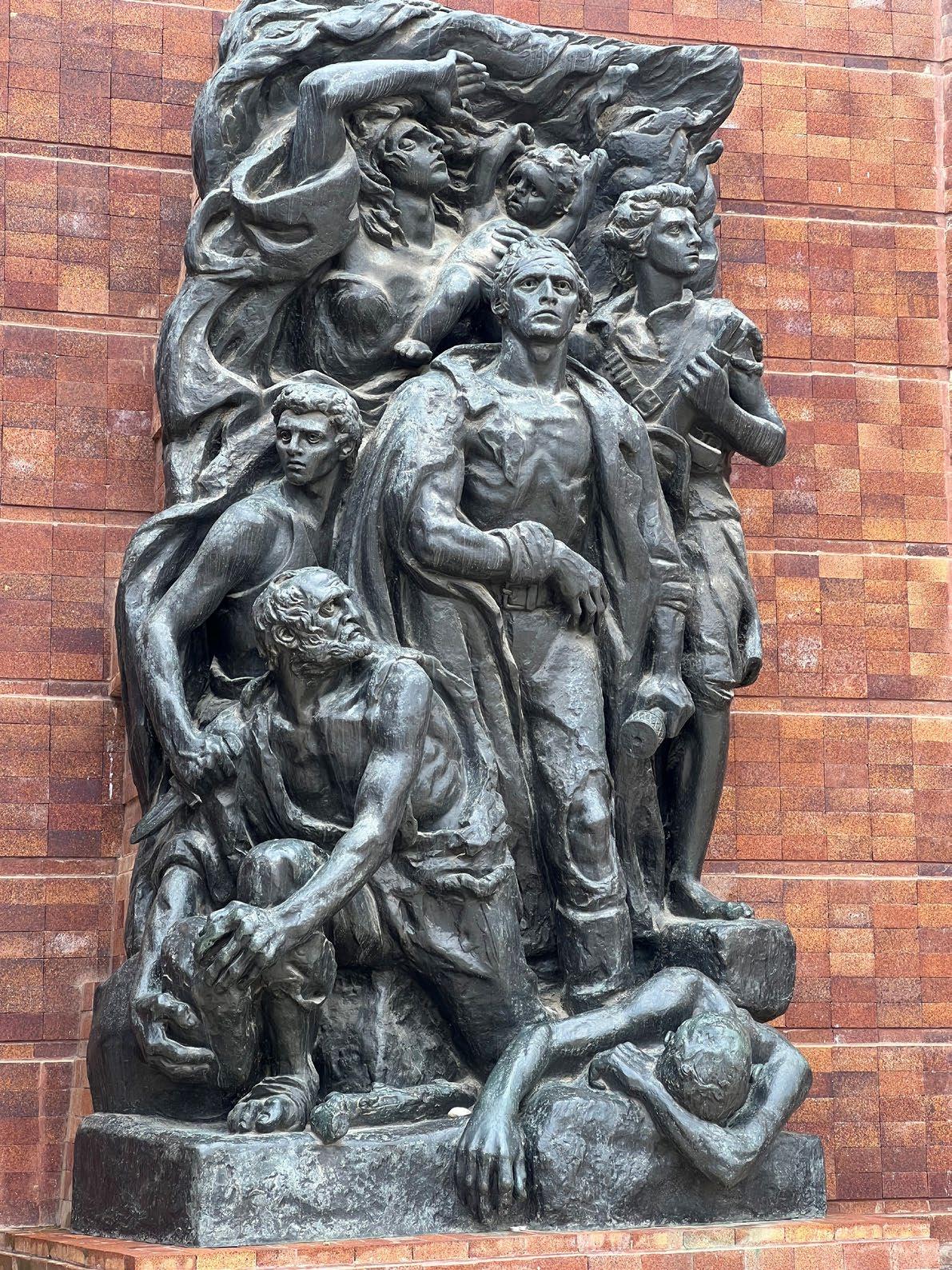
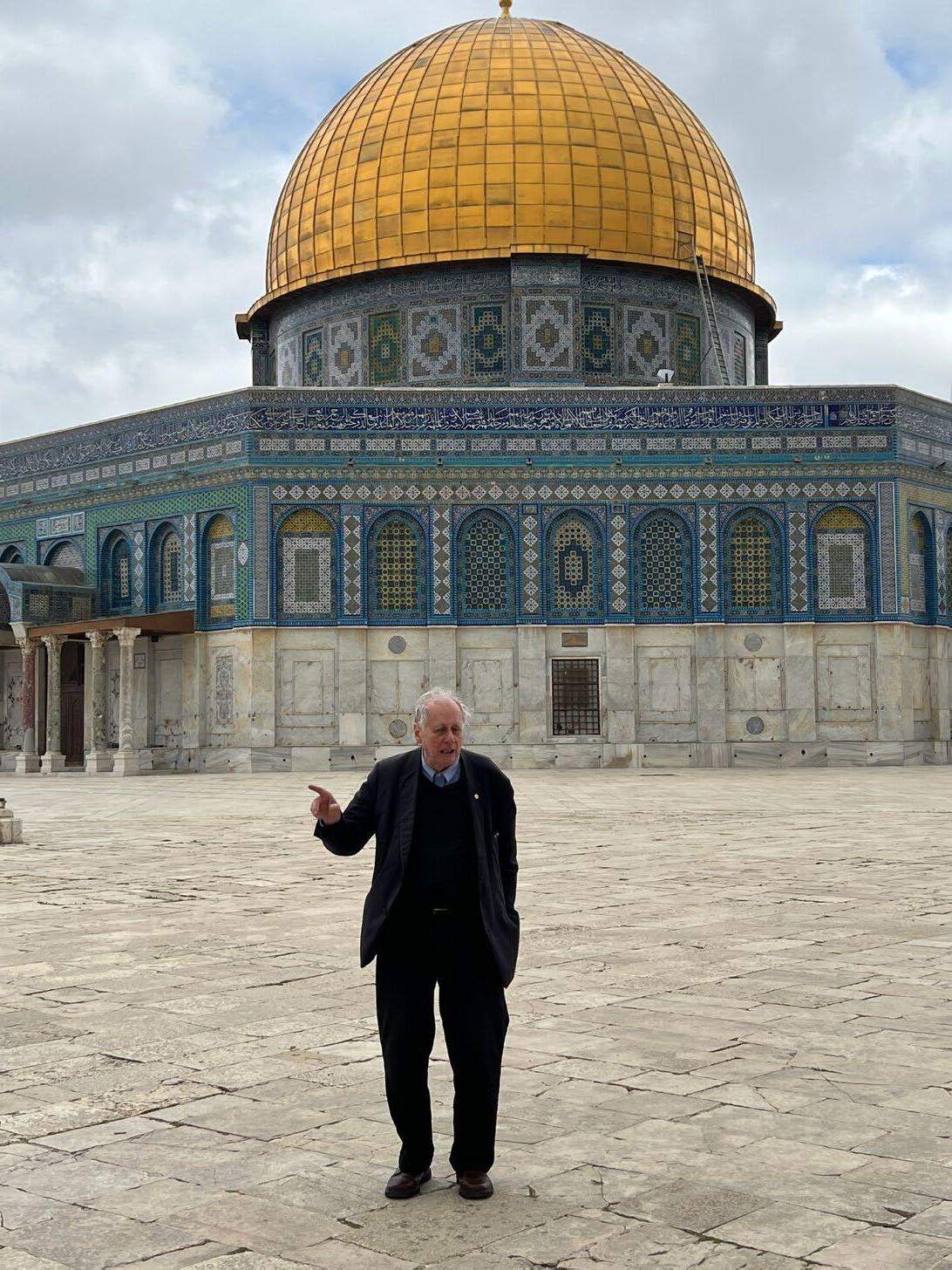
The submission deadline to be considered for the July issue is June 16. The submission deadline to be considered for the September issue is August 18.

Reminder: SubmitPhotosTravel
The ASEEES Mentoring Program is a great way to get involved in one-on-one discussions about dissertation rites, funding cycles, postdocs, job markets, and non-academic career trajectories.
Spring 2023 Issue 82.1
Cluster: Nationalism, (Anti-)Communism, and Violence in the European Cold War
Introduction by Sabine Rutar
“Paramilitarism, Social Transformation, and the Nation in Greece during the Civil War and Its Aftermath (1940s–1950s),” by Spyros Tsoutsoumpis
“Making Sense of the Violent Past: War Veterans’ Organizations in Post-Stalinist Czechoslovakia,” by Natali Stegmann
“Symbolic Time(s) of Violence in Late Socialist Bulgaria,” by Nadège Ragaru
“Pozharskii’s Grave and the Search for the Russian Nation in the Nineteenth Century,” by Susan Smith-Peter
“What Caused the Fall of N. A. Voznesenskii? The Gosplan Affair, the Leningrad Affair and Political Infighting in Stalin’s Inner Circle, 1949–1950,” by David Brandenberger and Nikita Iur’evich Pivovarov
“Giving Back the Gift: Predicaments of Patronage and an Offering from Włodzimierz Borowski,” by Eliza Rose
“In the Land of Giants: Eco-Mythology and Islamic Authority in the Post-Soviet Tatar Imagination,” by Agnès Kefeli
“Deterritorialized Nationality: Viktor Tsoi Saves the World,” by Steven L. Lee
Beginning in 2023, Slavic Review will default to digital only access. Members still wishing to have a physical copy must opt-in on their member profile.
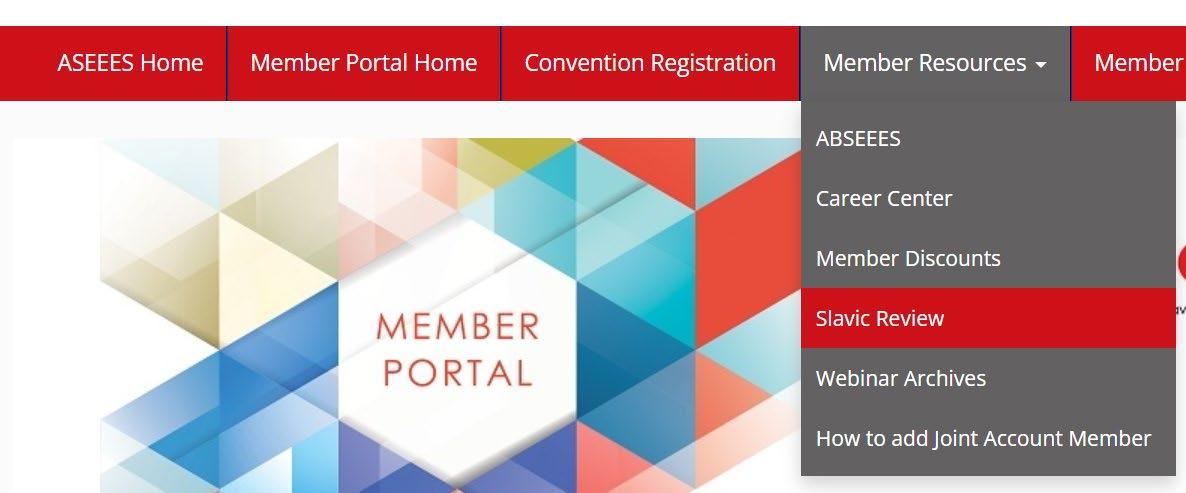

Choose to edit your profile, and look for the “Slavic Review Delivery” option under your contact information.


Join seees_announcements to stay up-to-date on job announcements, upcoming events and programs, CfPs and conferences, publications, and more.
International members must both opt-in for a physical copy in their profile, and purchase international shipping for $20.
If you have any questions about updating your profile or requesting a print copy of Slavic Review, please contact us.
Slavic Review can be accessed digitally from the ”Member Resources” tab of the new member portal.


In the Hour of War: Poems from Ukraine, edited by Carolyn Forche and Ilya Kaminsky, was published by Arrowsmith Press, 2023.
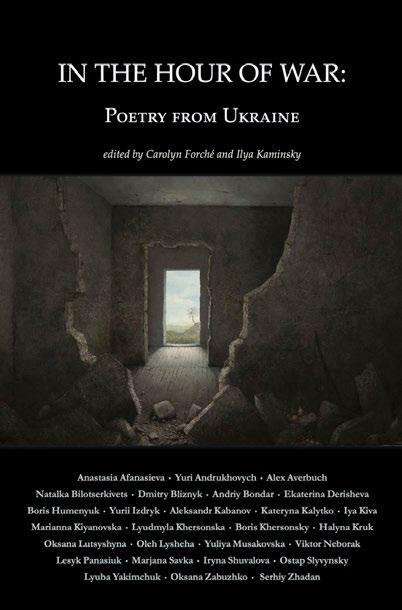
Kazakhstan: Snow Leopard at the Crossroads by Christopher Hartwell was published by Routledge, May 2023.

Ukrainian Ritual on the Prairies: Growing a Ukrainian Canadian Identity by Natalie Kononenko was published by McGill-Queen’s University Press, May 2023.

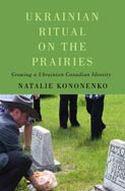
Sex Work in Contemporary Russia: A Cultural Perspective by Emily Schuckman Matthews was published by Rowman & Littlefield, February 2023.
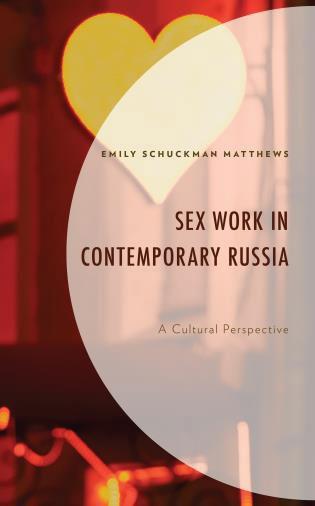
Energy Culture: Work, Power, and Waste in Russia and the Soviet Union, edited by Jillian Porter and Maya Vinokour, was published by Palgrave Macmillan, April 2023.
Tatsiana Shchurko (Ohio State University) was awarded an ACLS Fellowship for her project, “Haunting Aspirations, Scattered Intimacies: Resonances of Black Women’s Travels to the Soviet Union (1920-1980) for Anti-Imperialist Feminist Solidarities Today.”
Islam in Russia: Religion, Politics, and Society, edited by Gregory Simons, Eric Shiraev and, Marat Shterin, was published by Lynne Rienner, December 2022.
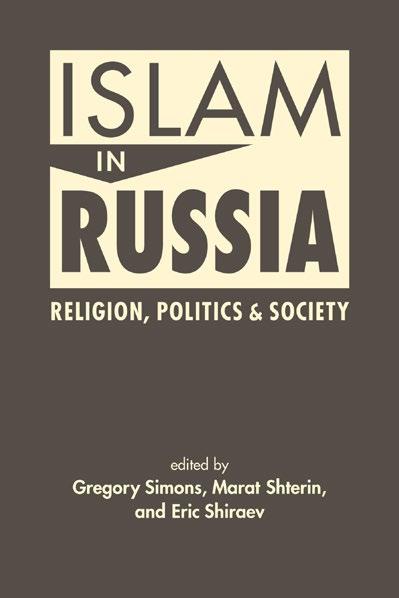
Film Adaptations of Russian Classics: Dialogism and Authorship, edited by Alexandra Smith and Olga Sobolev, was published by Edinburgh University Press, March 2023.

Post-imperial Encounters: Transnational Designs of Bessarabia in Paris and Elsewhere, 1917–1922 by Svetlana Suveica was published by De Gruyter Oldenbourg, May 2023.
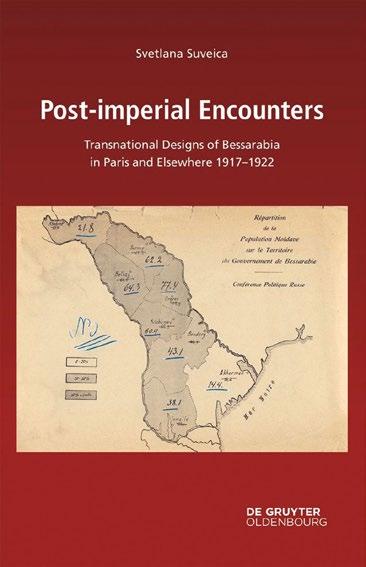
Delgerjargal Uvsh will join the University of Texas Austin as a tenure-track assistant professor of Slavic and Eurasian Studies this Fall.



David Patton, ASEEES past board member, is retiring after 30 years with American Councils for International Education

The American Council of Learned Societies (ACLS), in partnership with the Centre for Advanced Study Sofia (CAS), is pleased to announce 14 awardees of the inaugural Summer Institute for Scholars of East Central and Southeastern Europe (SISECSE). Awardees will conduct fieldwork and research at summer residency in Bulgaria.
Northwest Regional Conference For Russian, East European, and Central Asian Studies (REECAS) announces that the 2024 REECAS Northwest Conference will take place at the University of Washington on April 11-13, 2024.

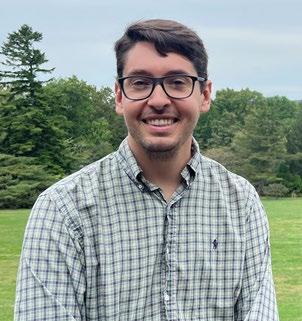 Griffin Creech
Griffin Creech
U of Pennsylvania, History, “Buriats Beyond Borders: Making and Unmaking Multi-Layered Citizens in the Russia-Mongolia Borderlands, 1890-1938”
“Buriats Beyond Borders” is a political and social history of citizenship in the Russia-Mongolia borderlands. Using sources in Russian, Mongolian, and Buriat, it considers attempts by the Russian imperial, Soviet, and Mongolian states to claim pastoral nomadic Buriats as citizens. The Buriats’ fluid borderland environment oriented them south to Mongolia and west to St. Petersburg and Moscow. My dissertation investigates how citizenship’s equalizing contentions operated amid porous borders, cross-boundary interactions, and ethno-confessional inequalities, and surveys Buriat reactions to state citizenship projects. After tracing the late-nineteenth-century advent of Russian imperial citizenship, I examine Buriat nationalist ideas on membership in a Russian-dominated empire between 1905 and 1917. Following Buriats who crossed this border between 1918 and 1938, I engage the Mongolian socialist state’s perspective, comparing Soviet and Mongolian efforts to make Buriats citizens. Nira Yuval-Davis’s idea of the “multi-layered citizen” conceptualizes how overlapping state initiatives interacted with Buriat visions of citizenship to produce heterogenous citizens who were integrated into certain spheres yet excluded from others. My dissertation provides a new way of understanding the Russian Empire’s and Soviet Union’s presence in Asia by seeing borderlands and citizenship as sites of interaction, eschewing the received frameworks of ideology, geopolitics, and diplomacy.
Harvard U, History of Art + Architecture, “Paths of Modern Photography in Central Asia (18901940)”
Recipient of the Women’s and Gender Studies Fellowship


Why do certain images come to represent a place? How does a photographer’s identity impact the photographs they take? These two interrelated questions are central to my dissertation, which examines the role of photography in representing—and misrepresenting—the transformations of Central Asia, from a colony of the Russian Empire into a laboratory for the promotion of the Soviet model and a site for the development of national identity. During a period animated by successive waves of imperialism, revolution, and industrialization, photographs shaped ideas about this region and its culture, especially since circulation in print enabled their transmission across great distances. By comparing the shifting aesthetic and ideological priorities of foreigners who visited Central Asia with those of local practitioners, my research foregrounds the diversity of perspectives recorded in the photographs produced in this major crossroad. I emphasize the remarkable prominence of women in the photographic narration of Central Asia as I consider a variety of photographic “actors:” travelers, studio professionals, amateur correspondents, photojournalists, and photo-editors. These intersecting narratives allow us to better understand how the camera was more than a tool for recording experience; it also enabled photographers to navigate, and even to define, the divergent paths of modernity.
Harvard U, History, “The Soviet New Age: Alternative spirituality and the collapse of communism, 1975-2000”
My dissertation examines the popular culture of alternative spirituality in the Soviet Union from 1975-2000. I approach this history from below, centering the ordinary people most associated with the popular phenomenon, especially women and the lower-to-middle classes. This project asks: what does the Soviet New Age tell us about the lived experience of Soviet collapse? How does it reveal ordinary people’s navigation of the ideological, spiritual, and material crises that engulfed society at this time? I suggest that people experimented with alternative spirituality to fill the spiritual and ideological vacuum left by the collapse of communism. Their attraction to the alternative reflected distrust towards official institutions and ideologies –and overall sense of alienation – that placed the Soviet case within the global processes of late twentieth century postmodernity. I study alternative spirituality as it emerged against the background of Eastern European Christian tradition then subsumed to state atheism in Russia, Ukraine, Lithuania, Latvia, Estonia, and Moldova.
Harvard U, History, “Popular Participation in Political Policing Under Stalin and Khrushchev, 1937-1965: The Secret Lives of Soviet Informers”
My dissertation, which includes case studies from Georgia, Estonia, Latvia, Lithuania, Ukraine, Moldova, and Germany, will present the first panSoviet history of informing under Stalin and Khrushchev (1937-1953). My project examines the perspectives of both secret policemen and informers, insofar as these are visible in the archive, attempting to unite the two in a broader history of Soviet informing: what did being an informer mean for informers themselves, and how did it change their social lives? How did secret police officers manage individual informers and informer networks, and how did this change over time? I trace the process of managing an informer, including how informers were recruited, how they participated in or were removed from investigations, and how they were released from their duties. The dissertation will reveal the inner dynamics of policing in a society that went through several cycles of political crackdowns and thaws, including the transition from the Stalinist dictatorship to the postStalinist system. My research will explore several types of documents located in the National Archives and political police archives in former Soviet republics and countries of the Warsaw Pact. These archival files include reports from the regional
organs of the political police to the central political police authorities, the documents of formal inspections of the work of regional and local police branches, orders of the central organs, and political police textbooks, case files, and card catalogues. My project will explore the ways in which informing practices shaped individual experiences, those of families and social networks, and those of communities across the Soviet Union. Changes in political policing contributed to ordinary people’s shifting perceptions of their role as participants in the process of governing their country; the experience of informers presents a vital insight into individuals’ understanding of civic duty and citizenship.

U of Pennsylvania, History, “Should I Stay or Should I Go: Jewish Repatriation, Reunification, and Emigration from the USSR 1955-1995 ”
During the second half of the twentieth century, Offices of Visas and Registration across the USSR received almost 1.5 million applications from Soviet Jews with a seemingly audacious request: an exit visa. This dissertation explores how Soviet Jews re-outlined the USSR’s ambivalent stance on population movement and more specifically, emigration. Though the contemporary moment often prioritizes conversations on immigration, questions of emigration have produced equally if not more controversial tensions between the state and its citizens over the last several centuries. My investigation begins in the mid-1950s, when 30,000 Soviet Jews immigrated to Israel through an initial repatriation to Poland, and continues through 1995, by which point over one million Soviet Jews found themselves scattered across the globe. While internal migration, displacement, and urbanization once proved vital to early Soviet state-building, by the 1950s the USSR’s policies on movement were fraught with contradiction. And by the mid-to-late twentieth century, when the USSR sought to hinder Jewish emigration, Soviet Jews circumvented its efforts. By emphasizing the agency of everyday emigres, my project explores how Soviet Jews engaged both extra-statal networks, such as the philanthropy or the family, and the USSR’s fraught legal and theoretical conceptions of movement to facilitate their emigration.

U of Pennsylvania, History, “The Cities They Wanted and the Cities They Built: Soviet Chief Architects and Urban Planning in the Era of Developed Socialism, 1954-1985”
My dissertation tells the story of the development of city planning institutions and urban politics in the period from 1957-1985. Drawing on a wide range of published and archival material from five major cities and three former Union republics, I examine how debates among city planners and between architects and various representatives of emerging social sciences in the 1960s were translated into policy that transformed urban politics and provoked widespread public debate well before perestroika. The urbanization process, a civilizing project imbued with the ideological content of the communist party, was supervised by technocrats who were increasingly in dialogue with international counterparts over the question of the limits of growth. By exploring these connections, I put the Soviet experience in dialogue with a broader literature about urban renewal, development, deindustrialization, and neoliberalism in the second half of the twentieth century.
Jewish Theological Seminary, Modern Jewish Studies, “Everyday Jewish Nationalism and the Creation of a Citizenry-in-Exile: The Zionist Movement in Late Imperial Russia, 1897-1917”
Lipsker’s research looks at the making of the Zionist movement in imperial Russia between 1897 and 1917. The movement’s founders and early leaders assumed that their sought-after homeland in Palestine would be populated primarily by Jews emigrating from the Russian Empire, home to the largest Jewish population in the world before World War I. Lipsker’s dissertation focuses on the hundreds of Zionist activists in imperial Russia’s western borderlands who set out to re-make ordinary Jews – family members, neighbors, and communities – into nationalist Jews. Using archival materials from three continents and published sources in Russian, Hebrew, Yiddish, and German, his dissertation traces the dissemination of Zionist ideas and practices in classrooms, synagogues, workplaces, salons, and within families, and how Zionists were influenced by parallel national movements in the Russian Empire. His approach emphasizes everyday interactions between movement leaders, local and regional activists, and ordinary Jews in the construction and maintenance of – and often failure to construct or maintain –nationalized identities in an imperial context.
Cornell U, Art History and Visual Studies, “Seeing Expansion: Representation in the Visual Culture of the Late Russian Empire”


“Seeing Expansion: Representation in the Late Russian Empire’s Visual Culture” examines how photography was the primary channel by which the empire constructed discriminatory perceptions of communities from Russian territories in Asia. Drawing on the hierarchies disseminated by ‘type’ photographs, imperial commissions such as paintings, objets d’art, illustrated volumes, and public monuments were designed to beguile viewers and portray certain communities as a timeless or temporally delayed Other. While official photographs crystalized new understandings of difference that validated the violence emanating from Russia’s center onto its surrounding regions, photography conveyed contradictory representations of identity as it spread to territories in Central Asia and eastern borderlands. A comparative approach to modernity reveals how the dazzling effects of media and art proved unwieldy to imperial motives, largely due to the unprecedented forms of expression that photography engendered. While early photography’s conventions reflected expansionist ideologies, the medium channeled unprecedented forms of subjectivity that emerged out of the empire’s refusal to integrate its eastern territories.
